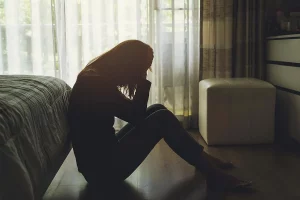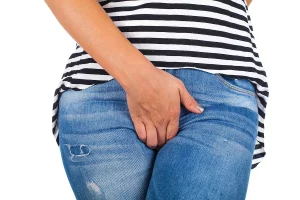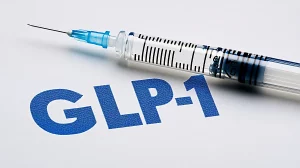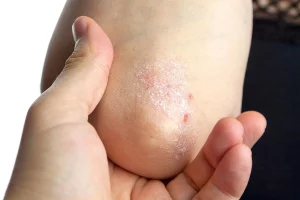A survey conducted among American gay and bisexual men in early August found about half saying they’d cut down on sexual activity — including one-night stands and app-based hookups — in response to the global monkeypox outbreak.
The survey, conducted online Aug. 5-15, was led by Kevin Delaney, of the Monkeypox Emergency Response Team at the U.S. Centers for Disease Control and Prevention.
“These findings suggest that men who have sex with men are already taking actions to protect their sexual health and making decisions to reduce risk to themselves and their partners,” Delaney’s team reported.
The timing of the survey — and its finding that America’s gay male community reacted swiftly to the monkeypox threat — coincides with a recent global decline in monkeypox cases.
According to World Health Organization data released Aug. 25, the number of monkeypox cases around the world dropped by 21% over the prior week.
According to the CDC, nearly 17,000 cases of the viral illness have been reported so far in the United States. The vast majority of cases are occurring among gay and bisexual men.
Monkeypox typically requires skin-to-skin or skin-to-mouth contact with an infected patient’s lesions to spread. People can also become infected through contact with the clothing or bedsheets of someone who has monkeypox lesions.
A vaccine for monkeypox called Jynneos exists, but it is in short supply. Vaccines are being rationed and reserved for those most at risk, including gay and bisexual men with multiple sex partners, and for health workers, laboratory staff and outbreak responders.
In the meantime, gay and bisexual men appear to be modifying their behavior to lessen the risk for infection and spread, the new study finds.
The new survey involved 824 U.S. adult men, 90% of whom reported sexual activity with another man at least once over the past three months (in other words, during the monkeypox outbreak).
Just over 70% of respondents were white, and about half were under the age of 45. They came from all over the United States, with about half living in cities.
“Respondents reported changing sexual behaviors since they learned about the monkeypox outbreak,” the CDC team reported.
Overall, “47.8% reported reducing their number of sex partners, 49.8% reported reducing one-time sexual encounters, and 49.6% reported reducing sex with partners met on dating apps or at sex venues,” the researchers said.
Monkeypox can be transmitted whenever skin touches skin, and about 42% of men surveyed said they’d reduced their attendance at “social events with close contact,” the study also found.
Of course, getting the vaccine is another way of protecting yourself from monkeypox.
According to the survey, by Aug. 15 nearly 19% of the men surveyed said they’d gotten at least their first dose of the two-dose vaccine.
“Receipt of vaccine was highest among Hispanic men [27.1%] and lowest among Black men [11.5%],” the survey found. Just under 18% of white men had received at least one dose of vaccine. More urban men got the shots compared to those living in rural areas, and vaccine uptake was highest in the Northeast (27.8%) and lowest in the South (13%).
Folks who had two or more partners were more likely to avail themselves of the Jynneos shot (about 30%) compared to people with one or no partners (about 14%).
Still, access to the vaccine remained a problem: According to the study, of the 662 people who said they had yet to get a vaccine, 28.5% said they’d tried to get one but had been unsuccessful.
By Aug. 15, actual cases of monkeypox were rare: Just 1.7% of the men responding said they’d become infected. And overall, America’s gay community appeared to be taking the outbreak in stride: “82.3% reported feeling confident that they could protect themselves from monkeypox,” Delaney’s group said.
In tandem with the survey findings, another CDC study sought to predict the impact of changes in sexual behavior on the spread of monkeypox in the United States.
As context, the authors of the modeling study noted that “one-time partnerships, which account for 3% of daily sexual partnerships [among gay/bisexual men] and 16% of daily sex acts, account for approximately 50% of daily monkeypox virus transmission.”
Within that framework, “a 40% reduction in one-time partnerships might delay the spread of monkeypox and reduce the percentage of persons infected by 20% to 31%,” the researchers concluded. They were led by Thomas Gift, also from the CDC’s Monkeypox Emergency Response Team.
Both studies were published Aug. 26 in the CDC journal Morbidity and Mortality Weekly Report.
More information:
Find out more about monkeypox at the World Health Organization.
SOURCE: Morbidity and Mortality Weekly Report, Aug. 26, 2022
Copyright © 2025 HealthDay. All rights reserved.
















